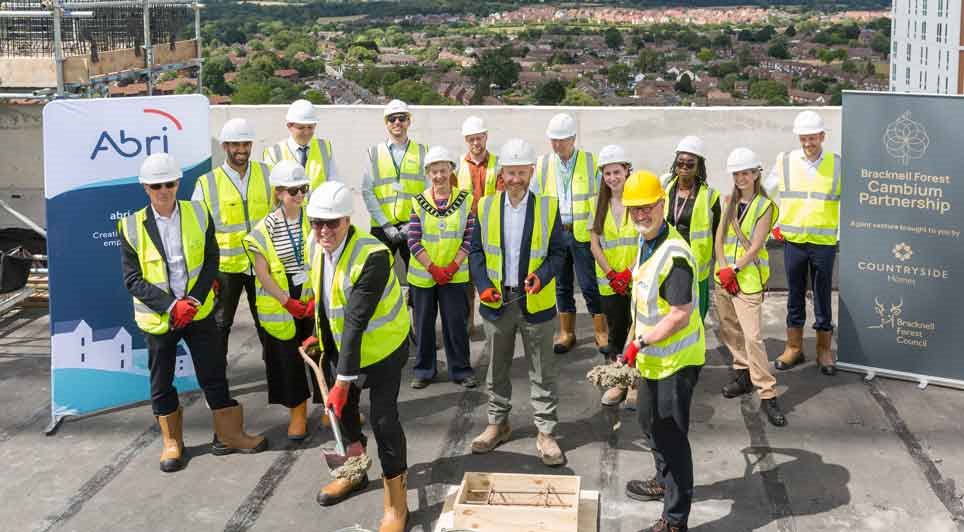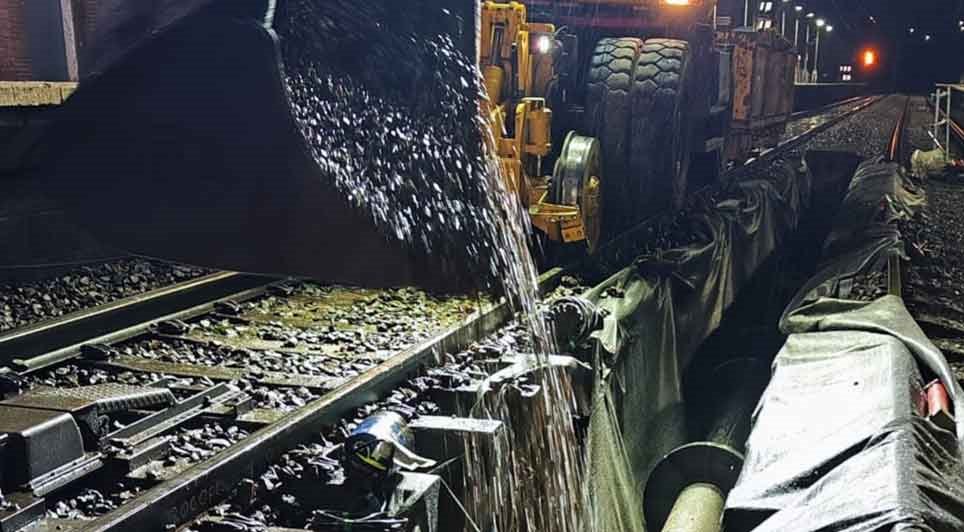It's 2019, 45 years since the Health and Safety at Work Act 1974 was implemented. So what is it, after 45 years, that we are still getting wrong?
Health and Safety Vs. Common Sense
We think Health and Safety is JUST common sense – but is it? If it was, surely multi-million pound companies wouldn't still be getting things wrong? It must be more than that, and actually, perhaps the stereotype that Health and Safety has 'gone mad' is the biggest danger to us, way beyond common sense failures.
Back in my day…
The fact is this: the Health and Safety at Work Act 1974 (HASAWA) was introduced in 1974, in those years that the older generation refer to as 'back in my day' normally when they're about to spout into 'we didn't need health and safety, we just didn't have accidents'.
I've got statistics on common sense
I mean, they're wrong of course, they did have accidents, plenty of them, shocking, horrible and often fatal accidents, which is why the HASAWA was brought in to begin with. What they didn't have 'in their day' was the power to share important messages like this generation do. Yes, they got a daily paper – but we can search the entire world's worth of daily papers to look at what has gone on in a day in any given place. We have the power to share something we find shocking, relevant or interesting with thousands of people with just a click, Health and Safety hasn't gone mad. We just use that as a terrible excuse to make silly, avoidable mistakes.
Official statistics from the HSE (Health and Safety Executive – the people who know this stuff) show that the implementation of the HASAWA has drastically reduced the amount of work place fatalities.
Please think back a little harder!
With all due respect, it may be that those lacking 'common sense' – or as I like to call it 'an awareness of hazards, accident and incident prevention and safe systems of work' were simply killed off.
HASAWA is there to protect you! Take advantage!
And actually, it probably wasn't their awareness of hazards, accident and incident prevention and safe systems of work that failed them, it was the fact that the people at the top of the business, those ordering in the new COSHH products, the ones arranging dangerous tasks and duties, the guys quite often in charge of delivering a wage slip at the end of the month, never once stopped to think "can we do this in a safer way?" and pass their findings onto the people following instructions at the bottom of the line.
You Matter!
So my message to you today is this:
• Statistics don't lie, HASAWA is there to protect you and its pretty good at doing that – pay attention to it.
• Simply stopping for a second and thinking 'is this safe?' could save someones life – stop and think, if it's not safe, stop until you find a way that is!
• If you're not sure, ask someone, if there is no one to ask, don't do it! Missing deadlines is NOT the end of the world, a work place fatality however… You know the rest.
• Think of your family.
• Think of the company standards and
• Think of yourself! You matter, do not endanger yourself for a 9-5.
So why do we still fail? I think I know the answer of course! It's because it's hard!
But I don't have time for that!
There's a lot to do, there's a lot to look at and a lot of paperwork involved. We want our team out on the job, bringing in money for the business, not inside poring over risk assessments and we don't want to pay people just to tick off boxes (even if we do).
So what is the answer?
Move with the times!
Software solutions are now commonplace as an answer to health and safety compliance, they replace the traditional paper/spreadsheet based systems and beat them black and blue in a competition for speed, effectiveness, reach and auditability.
Consider the consequences!
Even so, people still don't want to spend money on common sense. Those are the people who generally pay 100x the cost of a good health and safety system in fines and costs when their 'common sense' system fails and they are under a HSE investigation.
They're also the people who are in prison serving time for corporate manslaughter, or have lost their business in the name of useless or absent H&S policies and procedures. If you're looking at yourself and have just realised you are potentially going to become one of those people, don't fear – I can help!
CRAMS – Comprehensive Risk Assessed Method Statements
CRAMS is a fully inclusive, cloud based, health and safety software solution!
Investment can be as little as £2 per user, per month, CRAMS is already trusted by a wide range of customers across a variety of sectors, to manage their H&S risk in line with the HASAWA.
Built by our own team of in-house developers, our software is robust and reliable. We host and maintain the core infrastructure, so you just focus on getting the most out of CRAMS for your business.
We include lots of functionality in our software but use intelligent design to keep the user experience simple. There are other systems on the market, however many of them are just document depositories with limited functionality. No other system combines your sites, people, risks, methods, accidents/incidents and competency training in one dynamic all-inclusive application like CRAMS does.
Unlike traditional IT systems, cloud-based software is very scalable and affordable. There are no large upfront hardware costs, instead, you pay a one off deployment fee and then a monthly subscription based on the number of users on the system at any one time.
Finally, with CRAMS being cloud based it is available via any web enabled device. This allows us to provide maintenance and upgrades regularly and behind the scenes with no action required by our Users.
Don't let H&S get you down, move up to the cloud and futureproof your organisation!
It's The Law!
The basis of British health and safety law is the Health and Safety at Work Act 1974. The Act sets out the general duties which employers have towards employees and members of the public, and employees have to themselves and to each other.
These duties are qualified in the Act by the principle of 'so far as is reasonably practicable'. In other words, an employer does not have to take measures to avoid or reduce the risk if they are technically impossible or if the time, trouble or cost of the measures would be grossly disproportionate to the risk.
What the law requires here is what good management and common sense would lead employers to do anyway and that is: –
• to look at what the risks are
• take sensible measures to tackle them.
The Management of Health and Safety at Work Regulations 1999 (the Management Regulations) generally make more explicit what employers are required to do to manage health and safety under the Health and Safety at Work Act. Like the Act, they apply to every work activity. The main requirement on employers is to carry out a risk assessment.
Employers with five or more employees need to record the significant findings of the risk assessment. Risk assessment needn't be complicated in most work environments.
For more information visit www.crams.online.
You can also book a CRAMS demo here.
Construction News
09/07/2019
Health & Safety Gone Mad?


18/07/2025
Clowes Developments, in partnership with Roe Developments, has officially begun enabling works for the next phase of Stud Brook Business Park in Castle Donington.
The latest expansion will deliver five new trade counter, warehouse, and industrial units, ranging in size from 3,229 sq ft to 4,606 sq

18/07/2025
The Bracknell Forest Cambium Partnership between Countryside Partnerships (part of the Vistry Group) and Bracknell Forest Council has celebrated a major milestone in the transformation of Bracknell town centre, as its 169-home Market Street regeneration scheme reaches its highest point.
A topping o

18/07/2025
Construction has officially begun on Reading's newest performance venue, as work starts on the new Studio Theatre being built alongside The Hexagon.
The first phase of the project, led by Feltham Construction Ltd, includes the demolition of the existing backstage area, dock, and stage door on Queen

18/07/2025
A disused shop unit in Spennymoor has been given a new lease of life, thanks to a regeneration project that has turned the space into a green community garden in the heart of the County Durham town.
The former retail premises at 55–63 Festival Walk, which had remained vacant despite efforts to attr

18/07/2025
Wates Residential business has awarded £45,000 in funding to seven grassroots organisations in Brent through its newly launched Community Chest initiative.
The programme is designed to support small, community-led projects that address pressing local needs such as social isolation, youth services,

18/07/2025
Network Rail (Wales and Borders) has commenced a major programme of engineering works across key rail routes in South Wales, aimed at maintaining and improving the safety and reliability of the region's railway network.
Running from Saturday 2 August to Monday 11 August, the works will focus on tra

18/07/2025
A significant milestone has been reached in the drive to deliver high-quality, affordable, and sustainable housing across York and North Yorkshire with the launch of a new Affordable Homes Standard.
Led by the York and North Yorkshire Housing Partnership, the Standard marks a united commitment from

18/07/2025
Mace has been appointed to Transport for Greater Manchester's (TfGM) next-generation Transport and Professional Services (TPS2025) Framework, earning a place on the Project Cost and Commercial Management Lot.
The appointment extends Mace's successful partnership with TfGM and the Greater Manchester

17/07/2025
Pennyfarthing Homes has received detailed planning approval for the first 74 homes at Sandle Park, a new residential development forming part of the wider Forde Valley neighbourhood, located just a mile northwest of Fordingbridge town centre.
The approval, granted by New Forest District Council's P

17/07/2025
Bouygues UK has officially handed over the first phase of the Cotswolds Designer Outlet in Tewkesbury to regional developer and investor Robert Hitchins Ltd, with the new retail destination opening its doors to the public for the first time.
As lead contractor, Bouygues UK delivered 136,000 sq ft o
 UK
UK Ireland
Ireland Scotland
Scotland London
London










